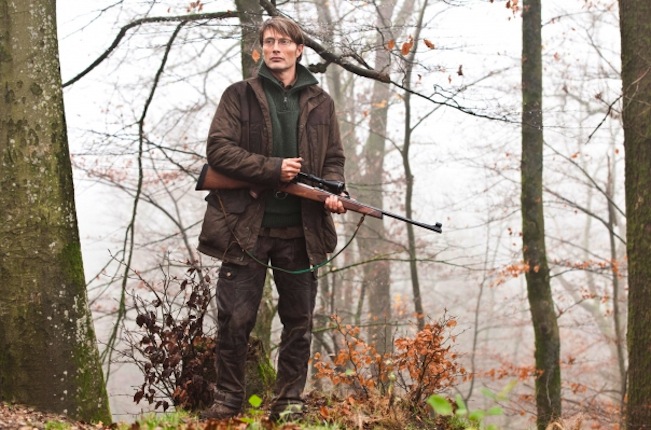By Jake Howell jake.howell@utoronto.ca
Countdown to Cannes: Garrone, Seidl, Vinterberg
The ninth (and last) in a series of snapshots of the twenty-two filmmakers in Competition for the Palme d’Or at the sixty-fifth Festival de Cannes.
MATTEO GARRONE
Background: Italian; born in Rome, Italy 1968.
Known for / style: Gomorrah and The Embalmer; contemporary applications of Italian Neorealism; the use of non-actors, hand-held cameras
Film he’s bringing to Cannes: Reality, an Italian-language comedy-drama that takes a satirical look at reality television: a Neapolitan fish merchant becomes obsessed with Italy’s version of Big Brother, Grande Fratello. The cast consists mainly of unknown actors, the notable exception being Claudia Gerini (Under The Tuscan Sun, The Passion of the Christ).
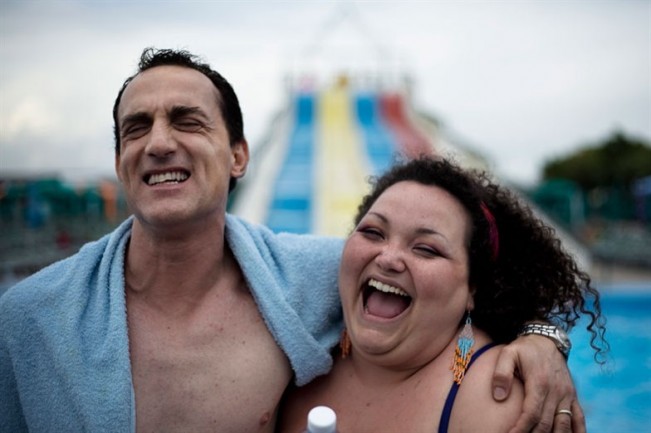 Notable accolades: Garrone cemented his career as a formidable auteur by winning Cannes’ Grand Jury prize in 2008 for Gomorrah, which also won him nods for Best Director and Best Screenwriter at the European Film Awards. His other films have also been honored at smaller festivals around the world.
Notable accolades: Garrone cemented his career as a formidable auteur by winning Cannes’ Grand Jury prize in 2008 for Gomorrah, which also won him nods for Best Director and Best Screenwriter at the European Film Awards. His other films have also been honored at smaller festivals around the world.
Previous Cannes appearances: Reality will be Garrone’s third feature at Cannes, and his second in Competition. Gomorrah nearly won the Palme in 2008, while The Embalmer played a parallel section in 2002.
Could it win the Palme? It may seem obvious, but the fact that Nanni Moretti and Matteo Garrone are Italian compatriots is not something to be taken lightly. At the very least, the jury has an ear that understands Garrone’s native language and can pick up on things that perhaps don’t translate in Reality’s subtitles. This doesn’t guarantee Garrone a win for Reality—the film’s quality will ultimately dictate that—but it certainly situates the director in a comfortable position. Having nearly won the Palme with his previous film, Garrone has the credentials as a filmmaker to surpass himself, especially if Moretti is more receptive to an Italian production.
Why you should care: There is likely no other director in the 2012 slate with an inherent advantage quite like Garrone’s, and it will be interesting to see if Reality will be Italy’s thirteenth Palme or not. Of course, if Garrone wins, some skeptics will criticize Moretti for naturally siding with his country of origin, even if the film is genuinely worthy of the title. (Sadly, I imagine thoughts like these will occur before the Palme is handed out.) In terms of the film’s narrative, it’s clear that Reality is a satire of the real success Grande Fratello has in Italy, meaning Reality could share some worthy comparisons to Visconti’s 1951 neorealist classic, Bellissima. And while damning reality television is the critical equivalent to shooting fish in a barrel, it’s possible Garrone’s latest film could tackle the logical expansions in the argument; for example the immense popularity of websites like YouTube. We live in an age where you can effectively “broadcast yourself” for as long as you want (and as loud as you want), which I feel makes Reality relevant. If it succeeds, the film has the potential to inspire some burgeoning new territory in film theory. If it doesn’t, well—perhaps it will encourage some Italians to rethink their television habits.
ULRICH SEIDL
Background: Austrian; born in Vienna, Austria 1952.
Known for / style: Dog Days and Import/Export; a career consisting of both documentaries and feature narratives; cold, depressing themes; the use of non-actors; producing and writing in addition to directing
Film he’s bringing to Cannes: Paradise: Love (Paradies: Liebe), a German / English / Swahili-language drama that is the first installment of Seidl’s planned Paradise trilogy (the second and third are subtitled Faith and Hope, respectively). Paradise: Love follows Teresa (Margarete Tiesel), a 50-year-old Austrian woman who travels to Kenya as a sex tourist targeting African male prostitutes in an attempt to find happiness. Aside from Tiesel (an Austrian television actress), the cast is fairly unknown.
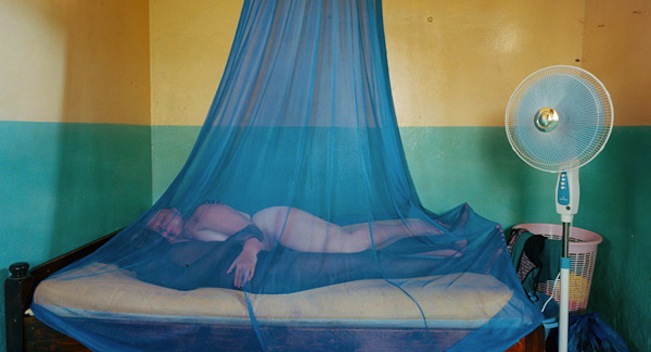 Notable accolades: Seidl’s Dog Days picked up Venice’s Grand Special Jury Prize in 2001, which is likely his biggest cinematic honor. Similarly impressive are the two Vienna Film Awards given to Seidl at the Viennale, for 2003’s Jesus, You Know and 1991’s Good News. The director has also accumulated several awards from a variety of smaller European festivals.
Notable accolades: Seidl’s Dog Days picked up Venice’s Grand Special Jury Prize in 2001, which is likely his biggest cinematic honor. Similarly impressive are the two Vienna Film Awards given to Seidl at the Viennale, for 2003’s Jesus, You Know and 1991’s Good News. The director has also accumulated several awards from a variety of smaller European festivals.
Previous Cannes appearances: Aside from Paradise: Love, the only other film Seidl has premiered on the Croisette was 2007’s Import/Export, which was unsuccessful in winning an award.
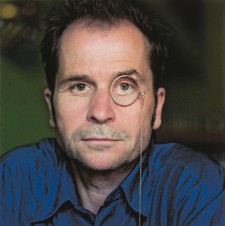 Could it win the Palme? In terms of geography, Seidl’s biggest competition is likely Michael Haneke, the other Austrian filmmaker in Competition. Given the buzz, Haneke’s latest film sounds downright devastating, and could leave Seidl lagging behind as the “other” German-language film at this year’s festival. Unfortunately, the word of mouth on Seidl’s Paradise project is fairly muted (the cast is mainly filled with local non-actors), and leaving Cannes 2007 empty-handed hasn’t helped either. However, despite Paradise: Love being one of the underdogs of 2012, the film is piquing attention from its intriguing narrative about sex tourism, a topic usually discussed in documentaries.
Could it win the Palme? In terms of geography, Seidl’s biggest competition is likely Michael Haneke, the other Austrian filmmaker in Competition. Given the buzz, Haneke’s latest film sounds downright devastating, and could leave Seidl lagging behind as the “other” German-language film at this year’s festival. Unfortunately, the word of mouth on Seidl’s Paradise project is fairly muted (the cast is mainly filled with local non-actors), and leaving Cannes 2007 empty-handed hasn’t helped either. However, despite Paradise: Love being one of the underdogs of 2012, the film is piquing attention from its intriguing narrative about sex tourism, a topic usually discussed in documentaries.
Why you should care: If Paradise: Love is any good, the film world will have two other films to look forward to in the coming months. On a positive note, the Paradise trilogy is reportedly about the exploration of finding happiness, and after the depress-o-thon that was Import/Export, it might be nice to see Seidl crack a cinematic smile or two. [Clips here.]
THOMAS VINTERBERG
Background: Danish; born in Copenhagen, Denmark 1969.
Known for / style: Festen and It’s All About Love; co-founding the Dogme 95 movement; hand-held cameras; on-location shooting; a focus on traditional methods of filmmaking and story-telling, avoiding overt special effects or technology
Film he’s bringing to Cannes: Jagten (The Hunt), a Danish-English-language drama that follows Lucas (Mads Mikkelsen, Casino Royale), a 40-year-old man suffering from a difficult divorce. Lucas attempts to reconnect with his teenage son Marcus, but matters complicate between their community, leaving Lucas to fight for his life and his dignity.
Notable accolades: Cannes honored Vinterberg’s trademark Dogme 95 film Festen with a Jury Prize in 1998, while the European Film Awards (EFA) titled the film as the European Discovery of the Year. Similarly, both the Independent Spirit Awards and the Los Angeles Film Critics Association gave Festen the Best Foreign Film award. In 2008, the EFA gave Vinterberg and his Dogme 95 co-founders an Outstanding European Achievement in World Cinema award for their work in the movement they created.
Previous Cannes appearances: Vinterberg’s Festen is his only prior title to debut at the Festival, winning the Jury Prize in 2008. However, in 1999, Vinterberg was the president of the short film jury.
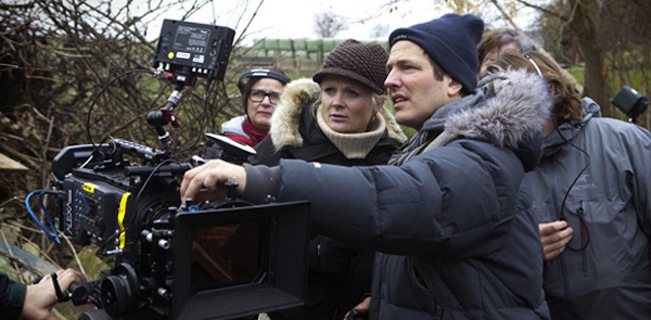 Could it win the Palme? In terms of Cannes awards, Vinterberg is currently batting 1/1. Of course, Festen (and 1998 at large) was perhaps a pinnacle for the director, who has had middling-to-low success both in the box office and international critical acclaim since his departure from the Dogme movement in 2003 (It’s All About Love was a unanimous failure). Fortunately, the plot of The Hunt seems to reflect the madness of Festen’s bizarre family dramas, and comparisons will likely be drawn between the two films. In terms of the talent in The Hunt, we know from Mads Mikkelsen’s excellent Bond villain in Casino Royale that the actor has the chops to carry a film to greatness, and with any luck the same is true for Vinterberg’s latest. The buzz is only decent for the director’s sophomore Cannes debut, but if the director is back with a return to form, he could do quite well.
Could it win the Palme? In terms of Cannes awards, Vinterberg is currently batting 1/1. Of course, Festen (and 1998 at large) was perhaps a pinnacle for the director, who has had middling-to-low success both in the box office and international critical acclaim since his departure from the Dogme movement in 2003 (It’s All About Love was a unanimous failure). Fortunately, the plot of The Hunt seems to reflect the madness of Festen’s bizarre family dramas, and comparisons will likely be drawn between the two films. In terms of the talent in The Hunt, we know from Mads Mikkelsen’s excellent Bond villain in Casino Royale that the actor has the chops to carry a film to greatness, and with any luck the same is true for Vinterberg’s latest. The buzz is only decent for the director’s sophomore Cannes debut, but if the director is back with a return to form, he could do quite well.
Why you should care: The Dogme 95 movement formally ended in 2005, but there are still a few remnants of its unique stylistic rules visible in Vinterberg’s post-Dogme work, namely the insistence of natural story-telling. Based on the plot (and the apparent hysteria that occurs between the film’s colorful cast of characters) The Hunt sounds like quite a yarn, and is the first Danish-language film to debut in Competition since Festen’s 1998 success. Additionally, it appears Vinterberg is rising back to his former glory: after two critical flops in the 2000’s, (It’s All About Love and 2005’s Dear Wendy), 2010’s Submarino was much better received, and went on to win the 2010 Nordic Council Film Prize, an award previously given to Lars Von Trier for 2009’s Antichrist.









